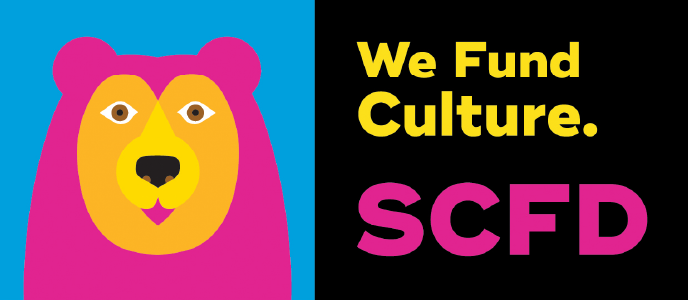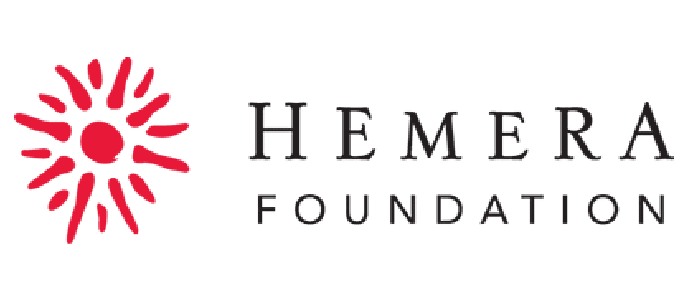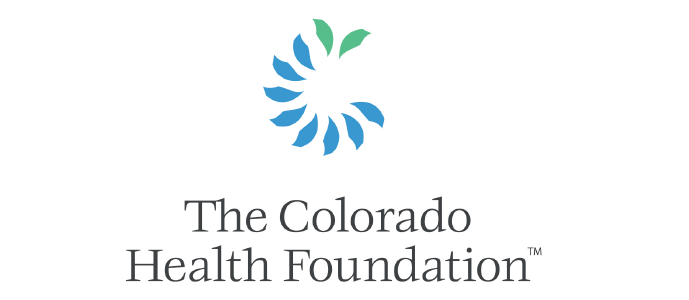RedLine is a proud partner and administrator of the Arts in Society grant. This collaborative program provides grants to both individuals and organizations that use art as a vehicle to promote social justice and community welfare.
We love highlighting our Arts in Society (AiS) grant recipients and all the unique and impactful projects made possible by their grant.
We’re excited continue this series with the 2023 AiS Grantee: The Ouray International Film Festival
Learn all about The Ouray International Film Festival and how they enrich local artistic culture in the San Juan Mountains.
Tell us about your organization
The Ouray International Film Festival (OIFF) exists to bring excellent films and filmmakers to the San Juan Mountains where we enrich the local artistic culture through our four-day annual summer event.
Founded in 2020, OIFF has hosted filmmakers hailing from Iran to Ukraine as well as all across the United States. We specialize in creating longform conversations around movies that matter. In this way, our organization works to enhance the cultural and civic life of Ouray County through film.
We also cultivate a robust partnership with Ouray School. One of our co-founders, Jake Abell, is a graduate of Ouray High School, a history that nourishes our evolving efforts to connect the festival’s resources to the students and faculty of the school. Some students have created multi-media art projects that we feature at the festival. Others have contributed to the student jury, which gives an award at each festival to a film of student choosing.
Our festival also arranges for invited speakers to visit Ouray School throughout the year, often as part of broader community initiatives that prepare the town for the upcoming summer festival.
Whether we are hosting award-winning actors like Paul Raci (OIFF 2023) or Iranian filmmaker Farbod Ardebili telling the story of punk rock in Tehran (OIFF 2021), our festival prides itself on creating an intimate and accessible experience for locals, tourists, and our global filmmaking community.
Tell us about your first project that will utilize your AiS grant
Through generous funding from AIS, we were able to convene over half a dozen Native and Indigenous filmmakers at Ouray School and the fourth annual Ouray International Film Festival.
This six month project grew out of our previous film festival. At OIFF 2022, we hosted Boulder-based Lakota filmmaker Connor Ryan. Screening his winter ski film Spirit of the Peaks outdoors under the stars was a major highlight of the festival experience that year.
In the months that followed, we chose to double down on exploring Native cinema in Colorado and around the United States at OIFF 2023. With that vision in mind, we began building relationships with a range of Native filmmakers from diverse backgrounds, age groups, and filmmaking styles.
Throughout the Spring of 2023, we organized three guest speaking events led by Native artists and educators at Ouray School. CJ Brafford, head of the Ute Indian Museum in Montrose, joined us twice to perform and speak to the whole high school and to interact with a Colorado History course.
Later in the spring, Colten Ashley gave a presentation about the history of Native cinema to a large cohort of high school students. Ashley also shared with students about his work with Native Lens, a filmmaking collective based in the Four Corners with national reach.
Showcasing short films from Native filmmakers around the region, Ashley helped students to refine their grasp of Native communities through regionally specific cinema.
The second portion of our project turned from the school to the film festival itself. As our 2023 Artist-in-Residence, Gregg Deal of Colorado Springs screened a short film with us, performed a multi-media one man show, and displayed his visual art at the Wright Opera House where the majority of the festival programming takes place.
We also had the privilege of hosting three young filmmakers from the Four Corners region (Israel Duran, Shannon Spencer, and Laelah Jaye-Kizzia). This trio had co-directed a short film focused on the Ouray Ice Park through a Native perspective. Not only were we able to host all the filmmakers at the festival; we were able to screen their film outdoors just a short mile from the ice park that forms the subject of their film.
Lastly, we were honored to host Professor Jeffrey Palmer (Cornell University) who brought his voice as a Kaiwa filmmaker to panels, Q&A’s, and a screening of his work.
In addition to other shorts films (including Kyman Greyhorse’s 2023 Sundance hit “I AM HOME”), we hosted all seven visiting Native filmmakers for a panel on the past, present, and future of Native cinema. Several festival patrons shared how this program was the most impactful dimension of their film festival experience.
Through these conversations, we sought to give Native artists the space to voice their diverse perspectives and stories in our community. Combined with our work at the school, we hope to have also allowed Ouray County to become more aware of Native cinema in Colorado and around the United States.
We believe this expanded awareness can promote new forms of action in Ouray, from curriculum enrichment at the school to future festival programming that sustains our commitment to Native filmmaking.
What’s next in the pipeline for your organization? What other projects are you dreaming up for next year, and how will your AiS grant help to support these efforts?
We are hard at work preparing our 2024 summer film festival in Ouray. Each year, we focus a portion of our program on films and filmmakers who connect our audiences to different efforts to secure social justice in global contexts.
This next year, we are working with Maria Pankova, a Ukrainian documentary filmmaker, to bring a cohort of filmmakers to OIFF that will help celebrate the history of Ukrainian cinema. Pankova attended our festival in person last year, and her short documentary about the Russian invasion of Ukraine was immensely impactful on the festival community.
Building on this past experience, we are working with other organizations around Colorado to connect with the Ukrainian diaspora in the state and local efforts in support of Ukraine within and beyond the Uncompahgre Valley. We look forward to bringing all these people and programs together at OIFF 2024 as part of our fifth annual film festival!
We are also expanding our partners at Ouray School. With a new faculty liaison and students involved, it’s an exciting season of creating fresh collaborations with students interested in film. We are also thrilled to be hosting a sister film festival in Silverton this year on October 14th with a program of 12 films selected from over 2,000 submissions.
What was your experience like when applying for an AiS? What tips would you share with artists looking to apply for an AiS grant?
We found it extremely valuable to develop concrete partnerships with project collaborators before and during the application process. This approach helped to ensure that own project vision was being shaped by other voices all throughout the process.
In our case, it was essential that Native voices were driving the form and content of our work from the beginning. To that end, we consistently approached our Native filmmaking partners by asking how we could best serve their cinematic vision at our festival.
Instead of asking others to conform to our expectations, we listened to how our partners wanted to sculpt different film screenings, panels, and presentations. That not only made for richer collaborations but a much more dynamic festival experience for audiences and a diverse set of educational offerings for students at Ouray School. So listening to your project partners is a key step to crafting a strong project community.
It’s also very useful to reach out to past grant recipients; you never know when other organizations may be an unexpected source of collaboration. AiS also provides amazing support throughout the application season which makes the entire process much easier.
Meet AiS Grantee: Storytellers of the Ancestral Red Road
Learn all about SOAR and how they share cultural wisdom and practice well-being and community-focused healing through creative expression.
Administered by RedLine, Arts in Society (AiS) is a grant program supporting cross-sector work through the arts across Colorado.










